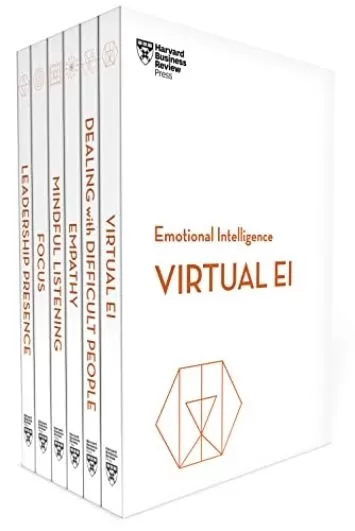About Emotional IntelligenceLearn More
Emotional intelligence is the ability to identify and properly respond to emotion in others, while also identifying and managing your own feelings. Emotional intelligence training can teach you how to actively listen, exercise empathy, and employ many other communication strategies. By using emotional intelligence, you can improve relationships at home and work. Udemy offers a range of courses to help you learn emotional intelligence skills.
Sort by:
Sorting
The newest
Most visited
Course time
Subtitle
Filtering
Courses
Subtitle

Linkedin Learning


Chill Anywhere
Improving Emotional Intelligence with Mindfulness 35:21
English subtitles
09/11/2024
Subtitle

Linkedin Learning


Brenda Bailey-Hughes
Communicating with Emotional Intelligence 43:14
English subtitles
09/01/2024
Subtitle

Linkedin Learning


Lorena Díaz Quijano
How to Develop Emotional Intelligence (Beta) 1:24:28
English subtitles
06/08/2024
Subtitle

Linkedin Learning


Samara Williams
Emotional Intelligence for Cybersecurity Professionals 37:55
English subtitles
03/28/2024
Subtitle

Linkedin Learning


Christopher D. Connors
Leading with Emotional Intelligence 1:15:40
English subtitles
01/31/2024
Subtitle

Udemy


Prince Patni
Emotional Intelligence for Software Engineers and Developers 1:20:16
English subtitles
12/09/2023
Subtitle

Pluralsight


Jason Edleman
Introduction to Emotional Intelligence 1:27:54
English subtitles
12/05/2023
Books
Frequently asked questions about Emotional Intelligence
Emotional intelligence (EQ) is the ability to perceive, control, and evaluate emotions. It relies on the ability to empathize and healthily respond to others’ feelings. Tests that measure EQ will assess how someone feels, rather than their aptitude for specific skills — which is the case for intelligent quotient (IQ) tests. You can break EQ down into four levels: perceiving emotions, reasoning using emotions, understanding emotions, and managing emotions. EQ is essential for good interpersonal communication, as emotionally intelligent people have good self-awareness and can tap into their own feelings relatively easily, making their relationships stronger. Working on one's emotional intelligence may improve quality relationships and relationship-building skills. EQ can be overlooked compared to IQ, but it is actually a good predictor for longevity in relationships and overall functioning in life.
IQ refers to your ability to problem-solve, reason, and grasp or communicate complex ideas. EQ is the ability to recognize emotion in yourself and others and to use that self-awareness to guide your decisions and form strong interpersonal connections. IQ tests don’t evaluate emotional skills or creativity, whereas EQ does. A high EQ can indicate strong interpersonal skills, another type of intelligence. Often, we think “book smarts” signifies intelligence, and that is one form. However, EQ is another equally important type of intelligence derived from internally based factors. EQ stems from a strong sense of self, personal values, and an innate ability to have regard for others.
Some of the greatest innovators of the world are said to have strong emotional intelligence (EQ), but it's something that can be attainable for all. Many consider EQ a great trait to have because of how much it impacts our quality of life. Potential benefits include better communication skills to foster positive relationships and more empathy to reduce conflict. It also provides skills to overcome life's challenges, which in turn reduces stress and anxiety. Emotionally intelligent people might also have higher negotiation and people skills, which could take you further in your career than what's listed in your resume.






















